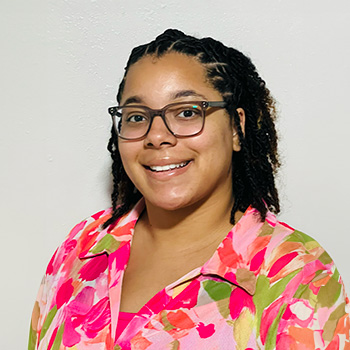Obsessive-compulsive disorder (OCD) is a serious and often debilitating mental health condition that affects people of all ages and backgrounds. It entangles you in a cycle of obsessions and compulsions. A cycle that can become so extreme that it consumes hours of their day, causes intense distress, and interferes with daily life and relationships.
Living with OCD can be exhausting—mentally, emotionally, and physically. The intrusive thoughts feel relentless, the compulsions overwhelming, and the anxiety that fuels them never seems to ease.
Symptoms of Obsessive-Compulsive Disorder
Obsessions:
Common obsessions include:
- Fear of coming into contact with germs or contaminated substances.
- Unwanted thoughts about violence, sex, or taboo topics.
- Excessive worry about harming others, making mistakes, or losing control.
- A strong need for order, symmetry, or things being “just right”.
Compulsions:
Common compulsions include:
- Repeating words, phrases, or prayers in a specific way.
- Counting, tapping, or performing tasks a certain number of times.
- Excessive handwashing, cleaning, or disinfecting.
- Arranging objects in a precise or symmetrical order.
- Repeatedly checking things, such as locks, switches, etc.

How OCD Treatment Can Help You
Shame and guilt can also make it harder to reach out for help. You might feel like you should be in control, or that you’re weak for not being able to just snap out of it. But OCD isn’t about willpower. And unfortunately, it doesn’t simply fade away on its own. Instead, it tends to grow, taking up more and more space in your life.
You can think of it as a faulty danger alarm. Your brain keeps signaling that something is wrong, even when you logically know the risk is minimal. That’s where compulsions come in. They may bring temporary relief, but in the long run, they reinforce the intrusive thoughts, keeping the cycle going.
We know that starting therapy for obsessive-compulsive disorder can feel daunting—almost like going against a precise safety plan you’ve been following for years.

Hi! I’m Janel, the Care Coordinator for New Connections Counseling Center.
Our Approach to OCD Therapy in Baltimore, MD
Cognitive-Behavioral Therapy (CBT)
Focuses on the negative thought patterns and behaviors that are causing anxiety. Negative thoughts can cause anxiety and actually make it worse. It’s challenging to feel peaceful when you are stuck in a constant loop of negative thoughts. Cognitive Therapy helps people with anxiety by turning negative thoughts into positive ones. Ultimately, this will improve your mood and help you feel less anxious.
Exposure and Response Prevention (ERP)
ERP is one of the most effective treatments for OCD. As a specialized form of CBT, ERP involves gradually facing feared situations or thoughts—known as exposures—while resisting the urge to act on compulsions. With your therapist’s guidance, you’ll learn to tolerate distress and uncertainty instead of relying on rituals for relief. By repeatedly exposing yourself to these situations, your brain will begin to recognize that these danger alarms are not real.
Acceptance and Commitment Therapy (ACT)
ACT helps you develop a new relationship with your intrusive thoughts. Instead of trying to fight or suppress them, it teaches you to acknowledge these thoughts without letting them dictate your actions. Through mindful behavior and acceptance techniques, ACT empowers you to take meaningful steps toward a life that isn’t controlled by OCD.
Mindfulness and Relaxation Techniques
Mindfulness can be a powerful tool in managing OCD. By staying present and aware of your thoughts, emotions, and actions without judgment, you can reduce reactivity and find greater clarity. Practices like meditation and deep breathing can help create space between you and your intrusive thoughts, making them feel less overwhelming.
Exploring Causes of OCD & Coping Skills
Understanding the deeper roots of OCD can offer valuable insight. We help clients explore possible connections between their past experiences and their current struggles, building self-awareness in a supportive environment. Alongside this, we teach practical coping skills—giving you tools to manage distressing thoughts, emotions, and behaviors in a positive way.
Begin Obsessive-Compulsive Disorder Therapy in Baltimore, MD
If you are struggling with OCD, and are looking to find relief from your fears and worries, we can help! Follow these simple steps to begin obsessive-compulsive disorder therapy at our counseling clinic in Baltimore, MD:
- Schedule a free 15-minute consultation call with our Care Coordinator, Janel.
- Learn more about our therapists who specialize in OCD treatment.
- Break free from the cycle of obsessions and compulsions and lead a more peaceful and fulfilling life.

Other Mental Health Services Offered at New Connections Counseling Center
In addition to therapy for obsessive-compulsive disorder, our therapists offer a variety of other mental health & counseling services at our therapy center in Baltimore, MD. Ultimately, our goal is not only to help you feel better but help you live better.
Therefore, our services include anxiety treatment, therapy for depression, counseling for grief and loss, therapy for college students, counseling for life transitions, LGBTQ therapy, individual counseling for relationship issues, therapy for women, and therapy for men. Contact us today to learn more about the many ways we can help you!
Blog Posts for OCD & Anxiety

Setting Boundaries at Work: How to Protect Yourself from Burnout
Do you wake up already exhausted, dreading another long day at work? Are weekends no longer enough to help you rest and recharge? If you’re constantly running on empty, it might be time to rethink your work boundaries—and how they’re affecting your well-being. These...

How to Relieve Job Stress When Everything Feels Overwhelming
Feeling like job stress never stops—even after you clock out? Do you worry it’s taking over your life and relationships? Let’s dive into 5 actionable tips to help you relieve stress and regain control when everything feels overwhelming. For many American adults, job...

Anxiety in Women: Common Symptoms and Tips to Help You Cope
Do you find yourself constantly battling an underlying sense of restlessness and worry? As a woman, you likely juggle countless responsibilities every day — but could being a woman make you more prone to anxiety? Let’s dive into how anxiety shows up in our lives and...
